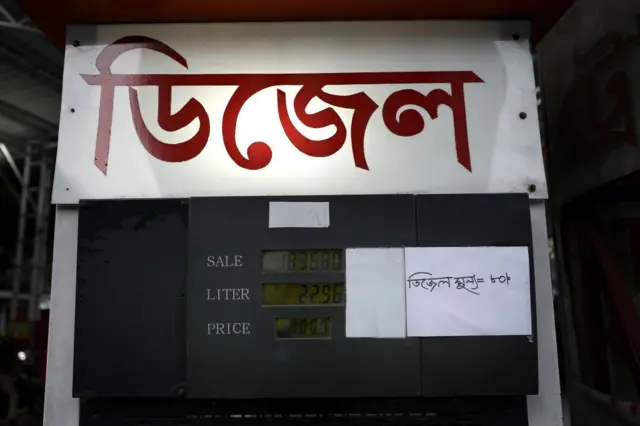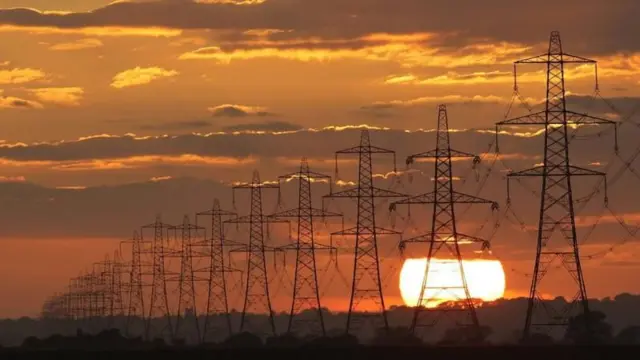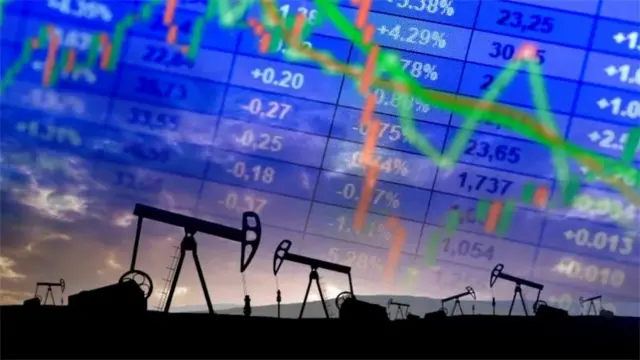It was decided to adjust the price of electricity and energy in Bangladesh from March this year with the international market. But, it appears that despite the decrease in the world market last month, the price of fuel oil has been increased in the country.
The new prices are effective from 1st of this month. According to the press release of the Ministry of Power, Energy and Mineral Resources on May 30, the price of diesel and kerosene has been increased by 75 paisa and the price of petrol and octane has been increased by 2 and a half taka.
In this, the price of diesel and kerosene stands at 107 taka 75 paisa per liter. And, the price of petrol and octane is Tk 127 and Tk 131 per liter respectively.
However, the World Bank’s report on ‘commodity prices’ (commodity prices) on the fourth of June says that the price of crude oil has decreased to about six dollars per barrel at the beginning of May.
The government started ‘price adjustment’ of electricity and fuel from the first week of March to come out of the system of subsidy on energy.
A total of four price adjustments have been made so far. Where the price has decreased twice in line with the world market. Again, it has increased twice. But, in terms of decrease-increase, why is it not always similar to the international market?

IMAGE SOURCE,GETTY IMAGES
What is the BPC saying?
Bangladesh Petroleum Corporation (BPC), a state-owned company, imports and markets fuel oil in Bangladesh.
It is known from the sources of the company that although it deals with almost all types of fuel, the main business of the corporation is diesel.
BPC chairman claimed that there is no benefit even if the price of diesel is increased by 75 paise. Amin Ul Ahsan.
He told BBC Bangla, on the contrary, additional expenditure of 512 crore rupees has to be made from the previous profit.
He claimed that the dollar’s crawling peg system (the exchange rate of the dollar rises and falls within a certain range) is responsible for not reducing the price of fuel in the country despite the decline in the world market.
Admitting that the prices have decreased slightly in the international market, he said, even after the adjustment, there has been no reflection at the consumer level, because the value of the dollar has changed against the rupee at this time.
“I have opened an LC for 110 taka, but I have to pay 117 taka,” added Mr. Ahsan
If the price of diesel was increased by Rs 7, the marketing of diesel would have broken even (income-expenditure equal), says BPC chairman.
“A business is sustainable if there is at least five per cent profit. If there is break even, then there is no sustainability. Last month we had zero margin,” he said.

IMAGE SOURCE,GETTY IMAGES
Experts say
Professor Golam Rahman, president of the Consumer Association of Bangladesh (CAB), an organization that works on consumer rights, considers the reason for the dollar price to be reasonable.
However, he told BBC Bangla that he does not support adjusting every month.
The price of fuel is also related to the costs of the manufacturing sector, including transportation costs.
Professor Rahman said, “Adjustment is not possible in everything simultaneously.”
“When oil prices go up, everything goes up. But when oil goes down, everything doesn’t go down,” he told BBC Bengal.
Against the international market, the increase in fuel oil prices may be due to the dollar, but an energy expert in Bangladesh, Professor M. Tamim expressed his doubts about BPC.
“BPC is such an opaque organization, it is hard to believe anything they say. We don’t know how it is being done, how much is being charged,” he said.
He suggested that since the formula for coordination with the international market is given, Bangladesh Energy Regulatory Commission (BERC) can do that.

IMAGE SOURCE,GETTY IMAGES
When will it decrease?
Apart from the international market, fuel oil prices also depend on factors such as transportation costs, such as ship fares.
BPC Chairman. Amin ul Ahsan said that the ship fare is stable for now.
“If the market price continues to fall, I am hopeful that there will be a little reflection after next month’s price adjustment,” he told BBC Bangla.
Earlier, the government used to give subsidy on fuel oil.
Referring to the IMF’s recent policy decision not to subsidize energy, Mr. Ahsan said, if the price is to be reduced further, the government should have given subsidy. But, it is not possible for policy reasons.
As a result, consumers will have to keep an eye on the July price adjustment.

IMAGE SOURCE,GETTY IMAGES
The government of Bangladesh increased the price of fuel oil by about 50 percent in August 2022, citing the increase in prices in the world market.
The price of diesel and kerosene has been increased from Tk 80 to Tk 34 per liter to Tk 114. Besides, octane was increased by Tk 46 per liter and petrol by Tk 44 at that time.
Due to such unprecedented growth, the cost of living increases. In addition to market goods, this also increases transportation costs.
Then the government notification quoted the Minister of State for Energy Nasrul Hamid as saying, “When the situation normalizes, the price of fuel oil will be revised accordingly.
In continuation of this, the government decided to determine the price of fuel oil in Bangladesh in coordination with the international market. This is referred to as Automated Pricing Formula for Fuel Oil.
In this formula, the price of oil is supposed to be determined in accordance with the price at which oil will be imported from the international market.